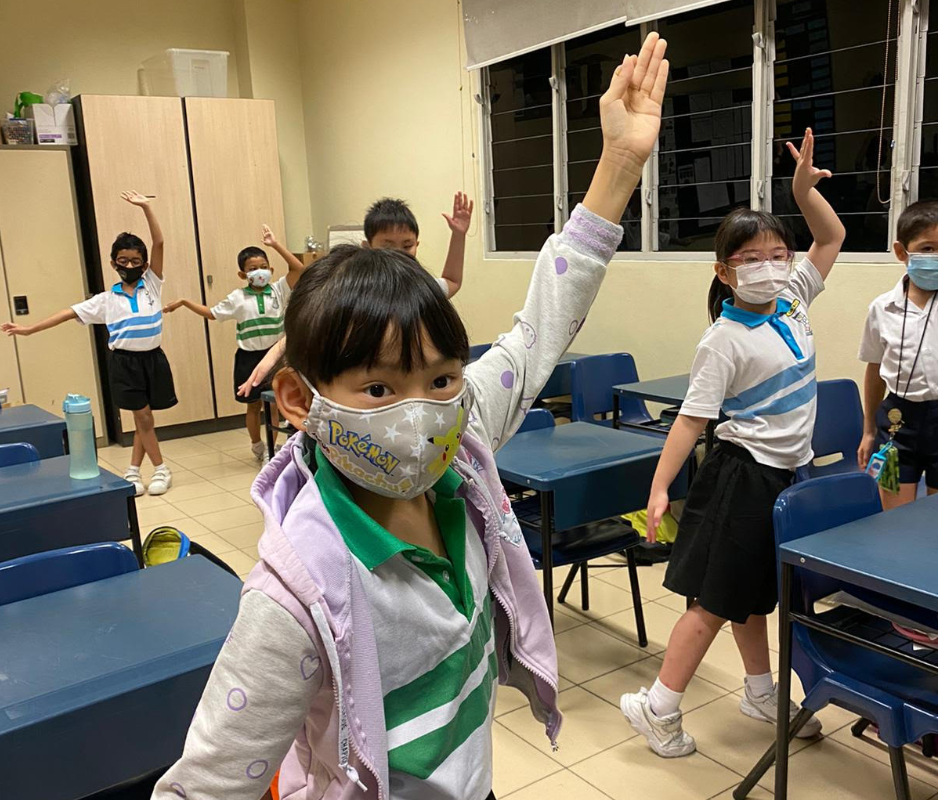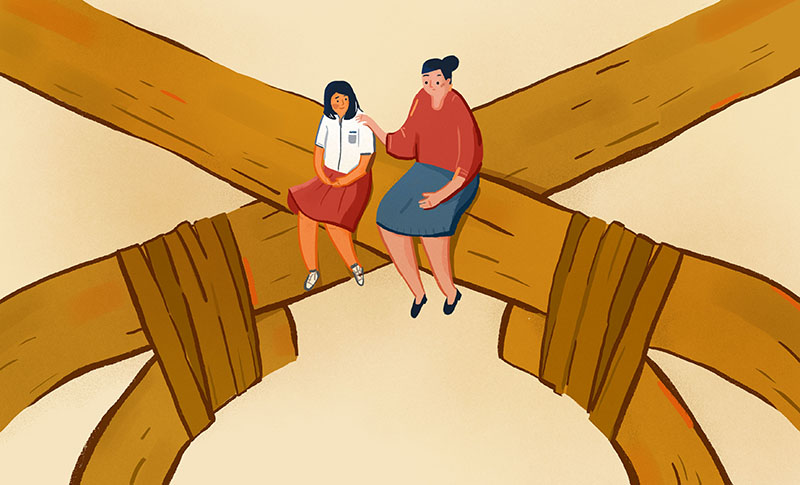Motivation from a Mentor
When I was a relief teacher seven years ago, I saw my mentor and friend, Mrs Goh, transform a group of unenthusiastic badminton players into self-disciplined and highly motivated school athletes. She managed this even with limited coaching experience.
But her focus was not on competitions. She always asked me: “What can they take away after they leave the school?”
This thought stayed with me when I was posted to Bedok South Secondary in 2013.
I noticed the students facing many personal struggles – some were grappling with their adolescent identities; others lacked close adult guidance at home and were easily swayed by their friends. Many of them depended heavily on mobile phones to communicate, but had difficulties articulating their thoughts and feelings face-to-face.
I decided that the answer to Mrs Goh’s question was good values and a strong character. Resilience, respect for self and others, and the ability to relate well to people will definitely be takeaways I want my students to gain through their school experience.
Values through Sports
I dreamed of helping to create a school environment where students learn to build good relationships through serving others, and develop awareness and empathy in the process. When students are given opportunities to be mentors, they can model the right values and behaviour for their juniors.
I set about working towards that goal in my own small way, starting with my areas of influence: the Badminton Co-curricular Activity (CCA), and student leadership.
When I became teacher-in-charge of Badminton, the senior boys’ team had discipline issues. They often turned up late, skipped training without valid reasons, and neglected routine duties such as putting away the nets and shuttlecocks. They were also reluctant to mentor the junior players.
On the courts, they frequently hurled vulgarities and threw their rackets whenever they were unhappy. I was determined to change this negative culture and instil the right attitudes and values.
I established routines and expectations for my players. For instance, each time a player was late or disrespectful, the whole team would be punished. Every time a student was absent from training, I would go to his class the following day to find out the reason for his absence.
One Child at a Time
One of my students, Jason*, skipped training during the holidays to work. When classes resumed, I noticed his behaviour getting worse, and learned that he was keeping bad company outside school.
I decided to talk to his mother about this and found out that she was a single parent who had no time to monitor her son. I could sense her helplessness when she told me to discipline Jason if he misbehaved.
The following day, I sought out Jason and shared about his mother’s sacrifices for him. Somehow, my words managed to move him and he decided to change and focused on improving his badminton skills by attending extra training sessions, while distancing himself from his bad influences. His grades improved.
Influence through Leadership
My student leaders were better behaved but had other problems, such as time management. I needed a different approach with them. In 2016, they were tasked to organise a school camp. However, due to miscommunications, several of the first day’s activities were either delayed, or not smoothly executed.
Even though I anticipated this, I did not intervene, as I wanted the student leaders to learn from the experience. I got them to reflect on what they did well, and what could have been done better. I then guided them on improving the remaining camp activities.
In the selection of student leaders, rather than just relying on interviews, I used situational tests to assess candidates. After their selection, I spent many afternoons sitting through their meetings, providing guidance on how events should be organised. I also spoke with members of their executive committee individually to understand them better.
There were times when my students failed to achieve their academic and CCA goals despite their best efforts. I provided a listening ear and let them vent their disappointments, while sharing with them my experiences.
I shared how I coped with failure as a former national badminton player, and how I learned that patience and perseverance were just as important to success as hard work.
Sincerity and Persistence
Occasionally, conflicts arise between students. I deal with this by talking to everyone involved to understand where they are coming from, and quickly correct any misperceptions. As a result, my students are becoming more comfortable opening up to me.
Not because they always agree with me – they do not – but because my sincerity and persistence have earned their respect. Even if they may not fully comprehend why I tell them to do certain things, they trust me, and eventually, they will appreciate the rationale behind my instructions.
I am heartened by how my students have grown in character and skills over the last four years. Nevertheless, the culture of care that I am working on is still a work in progress.
Now that I have set up rules and routines for my badminton players and student leaders, I intend to develop their social awareness and empathy by getting them to mingle with different groups that they might otherwise stay away from.
My biggest wish is for them to become good role models to those around them. I look forward to that day with anticipation.
*Name has been changed



.jpg)


